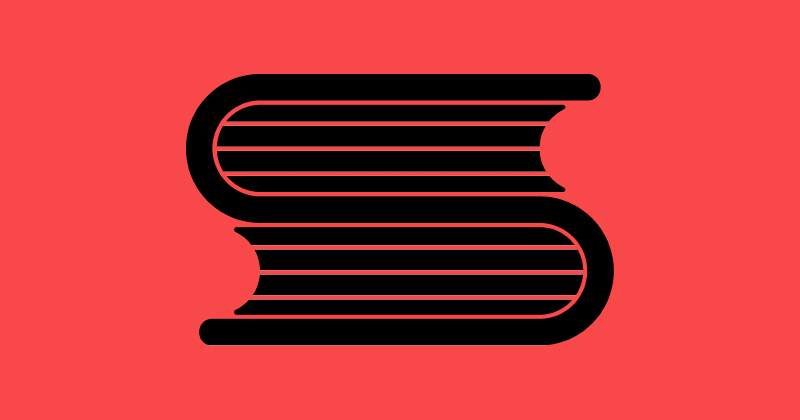The quote in the above headline is part of the last line of Rainer Maria Rilke’s famous sonnet, “Archaic Torso of Apollo,” as translated by Stephen Mitchell. It’s a haunting line, among the most recognizable second person directives in all of poetry. Each time I read the poem, I find it hard not think that I immediately need to get to work.
Life-changing experiences are unpredictable and hard to come by, but poetry is one of the most reliable places I know to seek them. And there’s a great opportunity to get more poetry in your life: this August, you can join the thousands of poetry readers around the world who will embark on the 7th iteration of The Sealey Challenge. The Sealey Challenge was started by poet Nicole Sealey in 2017, when she committed to read a book of poetry each day for the thirty-one days of August and used social media to encourage others to join her. Fast-forward to the present: follow the hashtag #thesealeychallenge online on social media platforms, and you’ll see thousands of posts from readers around the globe who are each reading hundreds of poems together every August. Why would you want to spend so much time in one month reading poetry? My assertion: joining others in a community of readers and completing The Sealey Challenge will change your brain, and likely, your life—among many other tangible benefits:
• We know reading poetry is good for you. The International Arts + Mind Lab in the Center for Applied NeuroAesthetics at Johns Hopkins University aggregated a range of studies to show that experiences with poetry—reading, writing, and reciting it—can improve mental health, heal traumas, elevate mood, and stimulate the right hemisphere of the brain—critical for creative problem solving.
• Experiences with poetry require unique focus and attention. It is estimated that people in America experience between 4,000 and 10,000 advertisements a day, each vying for our attention. If the first two decades of this century have taught us anything, they’ve taught us that strengthening our attention span helps us understand what is worthy of our attention. Poetry can help us create a powerful, individualized rubric, with the potential to meaningfully deepen our lived experiences.
• Time with books is not time with screens. Most experts now think people spend between six to seven hours online daily. By dedicating one to two of those hours each day to poems—if just in August—you’ll spend that time with one of the most capacious art forms, free from everything that vexes in the world of pixels.
• Collective action builds our civic connections. Surgeon General Vivek Murthy recently released an advisory on the epidemic of American loneliness, advocating for a national strategy to advance social connection. Reading poetry is a solitary experience; but reading significantly across a diverse range of writers with an international, eclectic group of peer readers is a collective investment in the kind of world we might all hope to share in the future.
• We’re on the precipice of a future that will look very different than our past, that will increasingly be driven by powerful adaptations of artificial intelligence stuffed to the brim with computer-generated language. Choosing the originality of poets is a choice to remind yourself of the pleasure and the complexity and the richness of humanity.
Some may think poetry is not for them, or that reading a poem is only a rarefied experience that must be understood slowly and with great scrutiny. Or: that an advanced degree is required. Reading a poem slowly and often is indeed a great way to read poetry, but not the only way. This is the brilliance of The Sealey Challenge. By reading a higher (but manageable!) volume of poetry during the month of August, you’ll read poems in a way that is different than how we are often taught they should be read. In my experience, this kind of reading engages pleasure at the level of language—highlighting sonic play, the texture of the words in the poems, and the poet’s syntactical choices. The Sealey Challenge is an experiment in density, and all kinds of new imaginative possibilities emerge in the connections, frictions, and echoes between reading experiences each day, across each engagement with a different poet’s mind and language.
In her poem “won’t you celebrate with me,” Lucille Clifton invites us all to celebrate her life, which has been made by her own volition, without models, born as she has been both “nonwhite and woman,” inheriting the brutal legacy of our country’s gender and racial inequities. This is another poem with a famous second person directive. About her life, Clifton writes “i made it up”—against all odds, a craftswoman making her life out of the materials she had, from her own toil and ingenuity. But also from those things she had no access to, fabricating her experience out of the injustice of that absence. She beautifully blurs the line between person-making and poem-making. The poem ends with these lines: “come celebrate / with me that everyday /something has tried to kill me / and has failed.” I hope you’ll choose poetry this August, to be reminded of what must be changed, and what deserves unequivocal celebration.
You can learn more about The Sealey Challenge here.
